News
Enigma of a governor without a deputy
Published
8 years agoon
By
Olu Emmanuel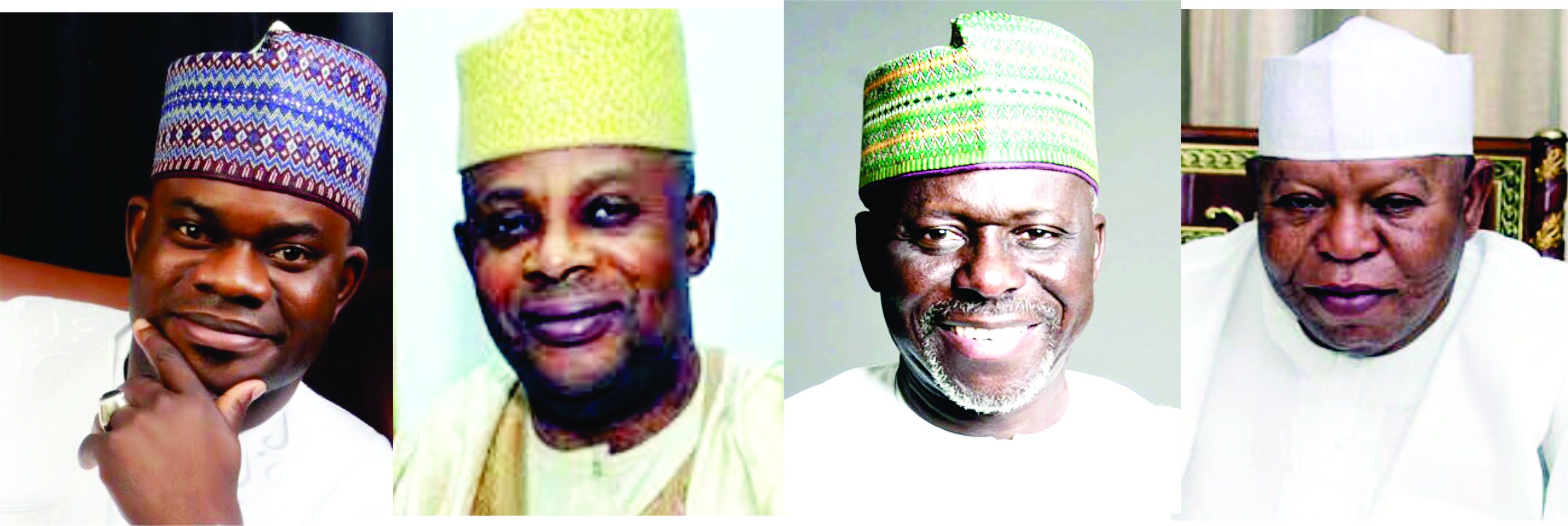
• Bello ascending throne with burden of illegality
• PDP contends to regain power
By SUNDAY ODIBASHI
THE Inauguration of Yahaya Bello as Governor of Kogi State on Wednesday, January 27, 2015, turned the most bizarre political phenomenon in Nigeria’s developmental democracy since 1999. The administration of Oath of Office and Oath of Allegiance on Bello by the Chief Judge of Kogi State, Justice Nasir Ajana, as the elected governor of the state from the November 21 inconclusive, and December 5, 2015 supplementary, elections in Kogi State created controversial history of a governor without a deputy governor which contradicts the constitution of the country in all its ramifications.
The controversy was compounded by the inability or unwillingness of the leaders of the All Progressives Congress (APC) to resolve the conflict of interests in the decision to replace Bello with late Prince Abubakar Audu who jointly contested and unofficially won the November 21 governorship poll with Abiodun James Faleke. The decision was stoutly rejected by Faleke who wrote both the APC leaders and the Independent national Electoral Commission (INEC) notifying them of not participating in the December 5 supplementary election as deputy governor to Bello. Bello and APC went into the supplementary election without a deputy governorship candidate.
An x-ray of the political landscape of Kogi State indicated that Bello emerged the first governor from a minority tribe in the state. This epitomized a paradigm shift in the power equation of the state relating to decision on who gets what, when and how from the commonwealth.
Before now, no governor has ever emerged from Kogi Central, dominated by the Igbira, the political zone of Yahaya Bello; and Kogi West dominated by the Yoruba race, the political zone of Faleke; since the emergence of democracy in 1999. Kogi State has perpetually been dominated by the East Senatorial District which is preponderantly populated by the Igala. Past governors from the Igala nation include late Prince Abubakar Audu 1999; Alhaji Abubakar Idris 2003; and Captain Idris Wada 2008.
While the political and state actors in Kogi State may be resolving the crisis of power domination in the state, the power shift to the Igbira nation through Bello has created legitimacy and constitutional crises.
At inauguration of Bello, James Faleke, deputy governorship candidate of the APC to late Abubakar Audu in the November 21election, had in a statement by the Director of Media and Publicity of the Audu/Faleke Campaign Organisation, Duro Meseko, declared inter alia: “Let me make it very clear to the good people of Kogi State and Nigerians, in general, that I am not Deputy to Yahaya Bello and will, therefore, not be present today at his inauguration.” He insisted: “I had made my position abundantly clear to my party, the All Progressives Congress (APC) and Independent National Electoral Commission (INEC) that I will not serve as Deputy to Bello, neither would I participate in the December 5, 2015 Supplementary election.” Faleke maintained: “A strongly worded letter was written to the leadership of APC and INEC to back up my position. It is, therefore, the height of political mischief for anyone to attempt to call my name for oath taking at an inauguration ceremony they know I would not be present.”
Faleke had earlier sent a petition to the Kogi State Election Petition Tribunal, contending to be declared the elected governor of the state.
The Peoples Democratic Party (PDP) was of the view that Yahaya Bello is simply on “excursion” as Kogi State Governor, saying that his tenure will not last for long. The leading opposition political party contended that Bello did not participate in the overall election.
In a statement by Professor Adewale Oladipo, PDP National Secretary, the party had argued that it was comical for Bello to claim the overall winning votes in the election as he was simply a “shadow-chasing passerby.”
“The people of Kogi are aware that the man being paraded by the APC is not the person they exercised confidence in at the election as he scored a paltry 6885 votes in the so-called supplementary election against the 204,877 votes polled by the PDP candidate, Idris Wada, in the overall election,” the PDP had declared. “This is a slap on democracy,” PDP stated; expressing the hope that the courts will soon deliver justice on the true governor of the state who possesses the mandate of the majority of the people at the polls.
While Faleke and the PDP are already in court, the constitutional crisis in Kogi Sate has also been a subject of deliberation in the public court, which is the open society, though without prejudice to court proceedings.
The tenure of Governor Idris Wada ended on Tuesday, January 26, 2016, leading to the inauguration of Bello on Wednesday, January 27, 2016. The ascendance of Bello last Wednesday blocked the succession vacuum that would have emanated from the conflict in
APC over the decision to make Bello inherit the majority votes and potential victory of the Audu/Faleke joint ticket in the November 21election.
Prince Abubakar Audu died in the early hours of Sunday, November 22, 2015; the day the APC candidate had unofficially won the Saturday, November 21, 2015, governorship election, same day of collation the election was declared inconclusive by the INEC.
Faleke, a member of the National Assembly representing Ikeja Federal Constituency in the House of Representatives, has continued to insist on concluding the joint victory with Audu while a new deputy governor would be nominated. APC did not resolve this impasse but proceeded with the December 5 supplementary election.
The circumstances the November 21, 2015, governorship election was declared inconclusive further compounded the succession crisis. In the supplementary election, INEC declared Bello winner, Governor-elect and ‘inheritor of late Audu/Faleke joint victory,’ but Bello did not participate in the Novemerb 21 election in which majority votes that decided the winner were cast.
APC leaders seemingly had a mix-up over ‘ownership’ of votes cast at an election or the bonafide contestant in an election. Some argued that election mandate belongs to the political party, thus, the APC decision to replace Audu with Bello, at the party leaders’ desecration.
The other divide of the argument articulates that individuals contest elections while the political party provides the platform for campaigns and mobilization for votes; or sponsor candidates. Thus, it is believed that election mandate belongs to the candidate.
At the time the November 21 governorship election was declared inconclusive, the Audu/Faleke joint ticket of the APC had unofficially won with 204, 877 votes, while Wada of the PDP had 199,514 votes in the results from 21 local government areas.
The Returning Officer, Professor Immanuel Kucha, Vice Chancellor, University of Agriculture, Makurdi, Benue State, had declared the election inconclusive on the argument that the number of votes with which APC candidate defeated the PDP candidate was less than the number of registered voters in the 91 polling units where elections were cancelled. The decision, however, complied with the Electoral Act.
In the Saturday, December 5, 2015 supplementary election held in 91 polling units across 18 local government areas, Faleke declined participation as deputy governorship candidate, Bello went into that election without a deputy governorship candidate.
Subsequently, in the supplementary election result, Professor Kucha declared the APC candidate had 6,885 votes, bringing the total votes to 247,752, after the 240,857 votes in the November 21 election. The PDP candidate had 5,363, making a total of 204,877, after the 199, 514 votes on November 21.
Apparently, Bello emerged a governor elected with minority votes of 6,885, degenerating into legitimacy crisis over his wide acceptance in the election across the state where about 494, 723 total votes were cast. Faleke has wider winning margin of 204, 877 votes in the 247,752 total votes, which decide the legitimacy of the Governor of Kogi State. On the other divide, Wada of the PDP also has a wider margin of legitimate votes 204,877 than Bello. Invariably, Bello wallows in deep legitimacy crisis in the succession of Wada.
Furthermore, the 1999 constitution of the country, as amended, recognizes that individuals contest elections but “as members of political parties,” not political parties; political parties only sponsor candidates. Political parties do not stand as candidates in elections but provide platforms for members.
Accordingly, Section 177 of the amended 1999 Constitution stipulates that, “a person shall be qualified for election to the Office of Governor of a state if (c) he is a member of a political party and is sponsored by that political party.” Constitutionally, it is a person qualifies for election not political party. So, votes cast at elections are for the candidate.
Even section 221 of the constitution further lays more emphasis on candidates sponsored by political parties.
The contradiction, however, can a political party decide to shift sponsorship of a particular candidate in an election to another person under the circumstance of Audu’s death and the non-conclusion of the election?
More so, the provision of section 187 complicates the APC crisis over Kogi Deputy Governor. Section 187(1), making inferences from Section 186, clearly prescribes that, “in any election to which the foregoing provisions of this part of this chapter relates, a candidate for the office of Governor of a State shall not be deemed to have been validly nominated for such office unless he nominates another candidate as his associate for his running for the office of Governor, who is to occupy the office of Deputy Governor; and that candidate shall be deemed to have been duly elected to the office of Deputy Governor if the candidate who nominated him is duly elected as Governor in accordance with the said provisions.”
Bello went into the December 5 supplementary election without nominating a deputy governorship candidate who contested with him. From the constitution, it can be deduced that Bello was not validly nominated. Only the joint ticket of Audu/Faleke fulfils this provision for the APC. Also, Wada of the PDP fulfilled the provisions of Section 187(1) of the constitution. Accordingly, the APC is at crossroads at this juncture.
You may like
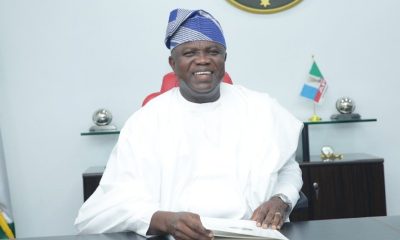

APC Stakeholders push for Ambode’s comeback in 2027
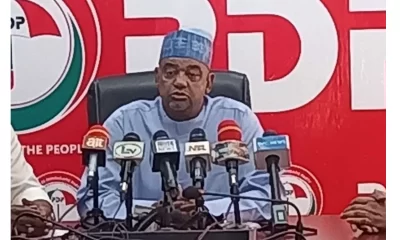

Damagum survives, retains position as acting chairman of PDP
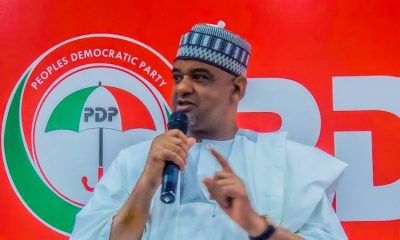

PDP NWC passes a vote of confidence on Amb. Damagum
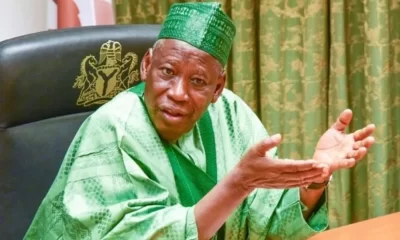

Court affirms Ganduje’s suspension as APC national chairman
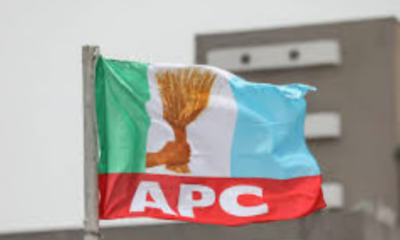

Relationship between Oyetola, Omisore remains cordial — Osun APC
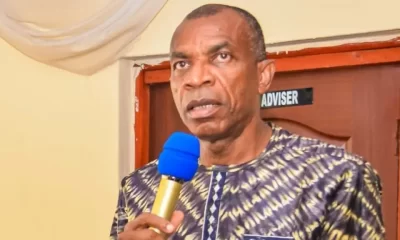

Just in: Abducted Edo PDP chairman, Aziegbemi regains freedom
Trending

 Football2 days ago
Football2 days agoGuardiola advised to take further action against De Bruyne and Haaland after both players ‘abandoned’ crucial game

 Business1 week ago
Business1 week agoRecapitalisation: Zenith Bank to raise funds in international capital market

 Education1 week ago
Education1 week agoArmy reveals date for COAS 2024 first quarter conference

 Covid-191 week ago
Covid-191 week agoBritish legislator demands Bill Gates, other ‘COVID Cabal’ faces death penalty

 Aviation4 days ago
Aviation4 days agoNCAA suspends three private jet operators for engaging in commercial flights

 Latest6 days ago
Latest6 days agoIsrael pounds Hezbollah with airstrikes after Iran attack

 Featured5 days ago
Featured5 days agoRelationship between Oyetola, Omisore remains cordial — Osun APC

 Aviation3 days ago
Aviation3 days agoDubai international airport cancels flights as flood ravages runway, UAE

